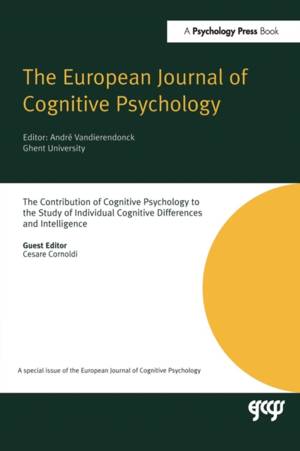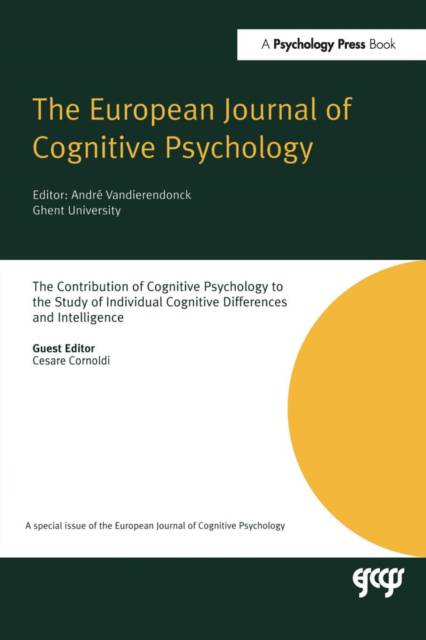
- Afhalen na 1 uur in een winkel met voorraad
- Gratis thuislevering in België vanaf € 30
- Ruim aanbod met 7 miljoen producten
- Afhalen na 1 uur in een winkel met voorraad
- Gratis thuislevering in België vanaf € 30
- Ruim aanbod met 7 miljoen producten
The Contribution of Cognitive Psychology to the Study of Individual Cognitive Differences and Intelligence
A Special Issue of the European Journal of Cognitive Psychology
Omschrijving
What is intelligence? How can we examine individual differences in intelligence? What does it mean to be very intelligent or dumb? Such questions have always pervaded human thinking, and have been raised during the development of scientific psychology. However, for many years, the practical needs of having reliable measures of intelligence have prevailed and the field has suffered the limitations of the psychometric approach. Recently, cognitive neuroscience, and in particular cognitive psychology, have proposed new models and data which have revived thinking in this area. This Special Issue offers examples of how the field of cognitive psychology can contribute not only to the refinement of theoretical thinking but also to the development of new tools for the study of human intelligence. The contributors to the issue are prominent researchers in working memory, speed of processing, executive functions, language, and intellectual development/decline and show how their lines of research may contribute key concepts and methods to the field. Different ideas and lines of research within cognitive psychology are presented, but, working memory, despite some contra-indications discussed throughout the issue, emerges from many chapters as the most important contender for the study of central aspects of intelligence.
Specificaties
Betrokkenen
- Uitgeverij:
Inhoud
- Aantal bladzijden:
- 164
- Taal:
- Engels
- Reeks:
Eigenschappen
- Productcode (EAN):
- 9781138877658
- Verschijningsdatum:
- 4/02/2019
- Uitvoering:
- Paperback
- Formaat:
- Trade paperback (VS)
- Afmetingen:
- 156 mm x 234 mm
- Gewicht:
- 240 g

Alleen bij Standaard Boekhandel
Beoordelingen
We publiceren alleen reviews die voldoen aan de voorwaarden voor reviews. Bekijk onze voorwaarden voor reviews.










